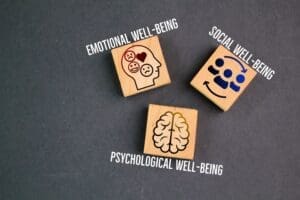
Our Service
Treating Social Anxiety: Find Your Path to Confidence
Are you constantly worried about being judged by others? Do you avoid social situations because of intense fear or anxiety? You’re not alone, and there’s hope.
Understanding Social Anxiety
Social anxiety disorder is more than just shyness. It’s a persistent, intense fear of social situations that can significantly impact your daily life. Symptoms include:
- Excessive self-
 consciousness in everyday situations
consciousness in everyday situations - Intense worry about embarrassing yourself
- Physical symptoms like blushing, sweating, or trembling
- Avoiding social interactions or enduring them with extreme distress
The Impact of Untreated Social Anxiety
If left untreated, social anxiety can have far-reaching consequences on various aspects of your life:
- Impaired Social Relationships
- Isolation and loneliness from avoiding social gatherings
- Difficulty forming and maintaining close personal relationships
- Educational and Career Setbacks
- Academic struggles due to challenges in class participation and presentations
- Limited career opportunities and advancement due to avoidance of jobs requiring interpersonal interactions
- Decreased Quality of Life
- Missing out on enjoyable and meaningful life experiences
- Overall reduction in life satisfaction and happiness
- Mental Health Complications
- Increased risk of
 developing other anxiety disorders and depression
developing other anxiety disorders and depression - Potential for substance abuse as a form of self-medication
- Increased risk of
- Physical Health Issues
- Development of stress-related conditions like cardiovascular and gastrointestinal problems
- Weakened immune system due to chronic anxiety
- Economic Impact
- Financial difficulties from underemployment or limited career choices
- Increased healthcare costs due to chronic stress and anxiety
- Self-Esteem and Self-Perception
- Negative self-image and poor self-esteem
- Reinforced feelings of inadequacy and incompetence
These long-term consequences underscore the importance of seeking treatment. With proper help, you can prevent these issues and significantly improve your quality of life.
The Good News: Social Anxiety is Highly Treatable
Social anxiety disorder is a recognized mental health condition with scientifically proven treatments. With the right approach, you can learn to manage your symptoms and live a fuller, more confident life. Here’s how social anxiety can be effectively treated:
- Cognitive Behavioral Therapy (CBT):
- CBT is a first-line treatment for social anxiety.
- It helps you identify and challenge negative thought patterns.
- You’ll learn to replace anxiety-provoking thoughts with more realistic, balanced ones.
- CBT also teaches practical skills to manage anxiety in social situations.
- Exposure Therapy:
- This technique
 gradually exposes you to feared social situations in a controlled, safe environment.
gradually exposes you to feared social situations in a controlled, safe environment. - It helps you build confidence and realize that your fears often don’t match reality.
- Virtual Reality Exposure Therapy is a cutting-edge approach allowing realistic practice scenarios.
- This technique
- Medication:
- In some cases, medication may be recommended in combination with therapy.
- Antidepressants, particularly SSRIs, can help manage symptoms of social anxiety.
- Medication is typically used as a short-term solution while you develop long-term coping strategies.
- Relaxation Techniques:
- Learning relaxation methods like deep breathing, progressive muscle relaxation, and mindfulness can help manage physical symptoms of anxiety.
- Social Skills Training:
- For some individuals, improving social skills can boost confidence in social situations.
- This might include learning conversation skills, assertiveness training, and body language awareness.
- Lifestyle Changes:
- Regular exercise, adequate sleep, and a balanced diet can significantly impact anxiety levels.
- Limiting caffeine and alcohol intake can also help manage symptoms.
With proper treatment, many people see significant improvement in their symptoms and quality of life. It’s important to remember that treatment is a process, and progress may be gradual. However, with persistence and the right support, overcoming social anxiety is absolutely achievable.
How Dr. Ginny Estupinian Can Help
Dr. Ginny Estupinian, PhD, specializes in treating social anxiety using a combination of effective, evidence-based techniques:
- Cognitive Behavioral Therapy (CBT): Learn to identify and change thought patterns that fuel your anxiety.
- Virtual Reality Exposure Therapy: Practice facing feared situations in a safe, controlled environment.
- Skill Practicing and Role-Playing: In a safe setting, which can help individuals gain confidence in social interactions.
- Customized Treatment Plans: Benefit from various empirically proven techniques tailored to your specific needs.
Dr. Estupinian’s approach is designed to help you:
- Understand the root causes of your social anxiety
- Develop coping strategies for managing anxiety symptoms
- Gradually face feared situations with confidence
- Improve your overall quality of life and relationships
Take the First Step Towards Freedom from Social Anxiety
You don’t have to let social anxiety control your life. With Dr. Estupinian’s expertise and proven treatment methods, you can overcome your fears and embrace social situations with confidence.
Ready to Start Your Journey?
Book Online Here
OR
Call Us: 844-802-6512
Don’t let another day pass in fear. Reach out now and take the first step towards a more confident, connected you.
Our Services Include
FAQ
What is social anxiety disorder?
Social anxiety disorder, also called social phobia, is a persistent mental health condition characterized by intense fear of social situations where you might be scrutinized by others. Unlike normal nervousness, social anxiety involves physical symptoms like rapid heartbeat, sweating, and trembling that persist for at least six months. It affects approximately 7% of adults annually, making it the third most common mental health condition after depression and alcohol dependence. Dr. Estupinian distinguishes social anxiety from introversion or shyness through a comprehensive diagnostic assessment using DSM-5-TR criteria.
What's the difference between social anxiety and being shy or introverted?
Shyness is a personality trait involving mild discomfort in social situations that doesn’t significantly impair functioning. Introversion is a preference for less stimulating environments and smaller social circles. Social anxiety disorder, however, involves debilitating fear that interferes with work, relationships, and daily activities. People with social anxiety desperately want social connections but are prevented by intense fear, while introverts choose solitude. Dr. Estupinian’s doctoral-level training ensures accurate differential diagnosis, helping avoid the overdiagnosis common among less specialized providers.
What are the symptoms of social anxiety in adults
Social anxiety manifests through cognitive symptoms (fear of judgment, catastrophic thinking, mind-blanking), physical symptoms (blushing, sweating, trembling, nausea, rapid heartbeat), and behavioral symptoms (avoiding eye contact, speaking quietly, extensive preparation or complete avoidance of social situations). Silicon Valley professionals often mask symptoms through over-preparation, email-only communication, or declining promotions requiring presentations. Dr. Estupinian’s assessment identifies both obvious and subtle manifestations specific to high-functioning adults.
How does social anxiety affect tech professionals and executives?
Social anxiety uniquely impacts Silicon Valley professionals through presentation avoidance limiting career advancement, networking difficulties at industry events, imposter syndrome amplified by fear of exposure, team leadership challenges, and avoiding crucial venture capital pitches or board presentations. Many tech workers choose remote positions not for flexibility but to avoid in-person interactions. Dr. Estupinian specializes in helping high-achieving professionals overcome these specific barriers while maintaining their technical excellence.
Can I overcome social anxiety while working in a demanding tech job?
Yes, Dr. Estupinian’s treatment is designed for working professionals, offering evening and weekend appointments, brief intensive treatment options, and practical strategies you can implement immediately at work. We focus on high-impact interventions like presentation skills, meeting participation, and networking strategies specific to tech environments. Many clients see improvement within 8-12 sessions while maintaining their regular work schedule. Virtual reality practice sessions can simulate specific work scenarios like all-hands meetings or investor pitches.
Is social anxiety common among engineers and tech workers
Research indicates higher rates of social anxiety in STEM fields, particularly among software engineers and data scientists. The tech industry’s emphasis on technical skills over soft skills can create environments where social anxiety goes unrecognized but significantly impacts career trajectories. Silicon Valley’s competitive culture and imposter syndrome prevalence exacerbate social anxiety symptoms. Dr. Estupinian understands the unique pressures of tech culture and tailors treatment accordingly.
Treatment Process Questions
How long does social anxiety treatment take?
Treatment duration varies based on severity and individual factors, but most clients experience significant improvement within 12-20 sessions. Dr. Estupinian uses evidence-based protocols showing 75-85% response rates. Initial symptom reduction often occurs within 4-6 sessions, with continued improvement over 3-4 months. Unlike generic therapy that can continue indefinitely, our structured CBT approach has clear endpoints and measurable outcomes. Some clients opt for brief booster sessions during major transitions.
How does virtual reality therapy help with social anxiety?
Dr. Estupinian’s VR therapy creates immersive simulations of feared situations like presentations, parties, job interviews, and dating scenarios. VR allows controlled, repeated practice impossible in real life, with physiological monitoring to track anxiety reduction. Research shows that VR exposure therapy is as effective as traditional exposure therapy and is more acceptable to clients. The technology particularly appeals to tech-savvy Silicon Valley clients comfortable with digital interventions.
Does therapy address dating anxiety and romantic social fears?
Social anxiety significantly impacts romantic relationships through fear of rejection, inability to initiate contact, and anxiety about maintaining relationships. Dr. Estupinian addresses dating app anxiety, first date catastrophizing, intimacy fears, and communication challenges. Treatment respects individual values while building confidence for an authentic connection. Many clients progress from complete dating avoidance to successful long-term relationships.
Can I do social anxiety treatment online?
Yes, teletherapy for social anxiety shows equivalent outcomes to in-person treatment in research studies. Dr. Estupinian offers secure video sessions with screen-sharing for psychoeducation, breakout rooms for exposure exercises, and digital worksheets for real-time collaboration. Some interventions, like VR therapy, require in-person sessions. Many clients appreciate hybrid approaches, doing cognitive work online and exposure exercises in-person.
How is social anxiety treatment different from general anxiety therapy?
Social anxiety requires specific interventions targeting fear of negative evaluation, while generalized anxiety involves worry about multiple life domains. Treatment includes unique components like attention training, video feedback, and social skills training, not used for other anxiety disorders. Dr. Estupinian’s specialized training ensures proper protocol selection rather than the one-size-fits-all anxiety treatment common in general practice.
What should I do if social anxiety is ruining my career?
Contact Dr. Estupinian immediately at 844-802-6512 for priority scheduling. Career-limiting social anxiety constitutes functional impairment requiring prompt intervention. Initial strategies include temporary accommodations while building skills, strategic project selection, minimizing triggers, and intensive treatment to address core fears. Many clients facing performance reviews or promotional opportunities benefit from accelerated treatment protocols.
What happens in the first social anxiety therapy session?
Your first session includes detailed anxiety history and trigger identification, standardized assessments like the Liebowitz Social Anxiety Scale, functional analysis of avoidance patterns, medical and medication history review, and collaborative goal-setting. Unlike general therapists who may take multiple sessions to understand your situation, Dr. Estupinian’s specialized expertise allows for immediate treatment planning. You’ll leave with initial coping strategies and a clear treatment roadmap.
Can therapy help with public speaking anxiety and presentation fear?
Public speaking anxiety, even when limited to work presentations, is a specific form of social anxiety highly responsive to treatment. Dr. Estupinian’s protocol includes graduated exposure from small groups to large audiences, video review to correct distorted self-perception, specific techniques for managing anticipatory anxiety, and VR practice with realistic audience responses. Success rate exceeds 90% for motivated clients. Many Silicon Valley executives have transformed from avoiding presentations to keynoting major conferences.
Does insurance cover social anxiety treatment?
Please note that the office of Ginny Estupinian, PhD, is private-pay only, and we do not accept or process insurance claims. Nonetheless, most PPO insurance plans cover social anxiety treatment as an anxiety disorder diagnosis (F40.10). Dr. Estupinian provides detailed superbills for out-of-network reimbursement. However, insurance often limits sessions and requires ongoing justification. Many clients choose private pay for privacy (no diagnosis on record), flexibility in treatment approach, and immediate access without pre-authorization delays. HSA/FSA funds are accepted.
Why choose a doctoral-level psychologist over a therapist or counselor for social anxiety?
Social anxiety often co-occurs with other conditions requiring sophisticated differential diagnosis. Doctoral-level psychologists have 5-7 years specialized training versus 2-3 years for master’s-level providers. Dr. Estupinian’s board certification indicates expertise beyond basic licensure. Complex presentations involving perfectionism, ADHD, autism spectrum, or depression require doctoral-level assessment capabilities. The expertise difference particularly matters for treatment-resistant cases.
Should I take medication for social anxiety?
Medication can be helpful, but it isn’t necessary for everyone. SSRIs show response rates of 50-60%, compared with 75-85% for CBT. Medication provides faster initial relief but higher relapse rates when discontinued. Dr. Estupinian coordinates with psychiatrists for combined treatment when appropriate, particularly for severe cases or co-occurring depression. Many clients successfully treat social anxiety through therapy alone, avoiding medication side effects.
How do I know if I need professional help for social anxiety?
Seek professional help if anxiety causes you to avoid important opportunities, interferes with work or relationships, persists despite self-help efforts, or includes panic attacks in social situations. Dr. Estupinian offers brief consultation calls to assess severity and treatment needs. Warning signs include declining promotions, avoiding dating, or increasing isolation. Early intervention prevents career stagnation and relationship difficulties.
What does cognitive behavioral therapy for social anxiety involve?
CBT for social anxiety includes cognitive restructuring to challenge catastrophic predictions, behavioral experiments to test feared outcomes, attention training to reduce self-focused attention, video feedback to correct distorted self-perception, and systematic exposure to feared situations. Dr. Estupinian uses Clark and Wells’ cognitive model, the gold standard for social anxiety treatment. Sessions include in-vivo practice, homework assignments, and measurable progress tracking through standardized scales.
How can I overcome fear of networking events and professional mixers?
Networking anxiety requires specific interventions beyond general social anxiety treatment. Dr. Estupinian teaches strategic arrival timing and exit strategies, conversation initiation and graceful ending techniques, managing wine/alcohol as a social lubricant versus a crutch, and transforming small talk into meaningful connections. We practice specific Silicon Valley networking scenarios, such as venture capital events, conference mixers, and company parties. Virtual reality simulations provide a safe way to practice before real events.
How much does social anxiety therapy cost in Los Gatos?
Individual therapy sessions range from $300 per 50-minute session, reflecting Dr. Estupinian’s doctoral-level training, board certification, and specialized expertise. Compare this to typical Bay Area rates of $200-300 for master’s-level therapists without anxiety specialization. The investment often pays for itself through career advancement previously blocked by social anxiety. Package rates available for intensive treatment programs.
What makes Dr. Estupinian's social anxiety treatment different?
Dr. Estupinian combines evidence-based CBT protocols with Silicon Valley-specific applications, cutting-edge VR technology, and measurable outcome tracking. Unlike generic talk therapy, treatment follows structured protocols with proven effectiveness. The practice’s location and clientele mean a deep understanding of tech industry pressures. Individual attention from a doctoral-level provider, rather than from community clinics’ rotating trainees, ensures consistent, high-quality care.
Can I continue my current anxiety medication during therapy?
Yes, Dr. Estupinian works with clients on various medications, coordinating with prescribers to optimize treatment. Therapy addresses psychological patterns that medication cannot change. Some clients maintain medication throughout therapy, others taper with prescriber guidance as they develop coping skills. Benzodiazepines (Xanax, Ativan) can interfere with exposure therapy effectiveness and are addressed carefully.
Any other queries?
We’re here to help with any additional questions you might have. Call 844-802-6512
 consciousness in everyday situations
consciousness in everyday situations developing other anxiety disorders and depression
developing other anxiety disorders and depression gradually exposes you to feared social situations in a controlled, safe environment.
gradually exposes you to feared social situations in a controlled, safe environment.